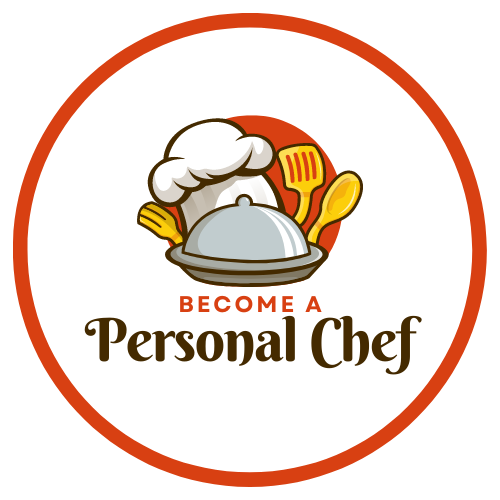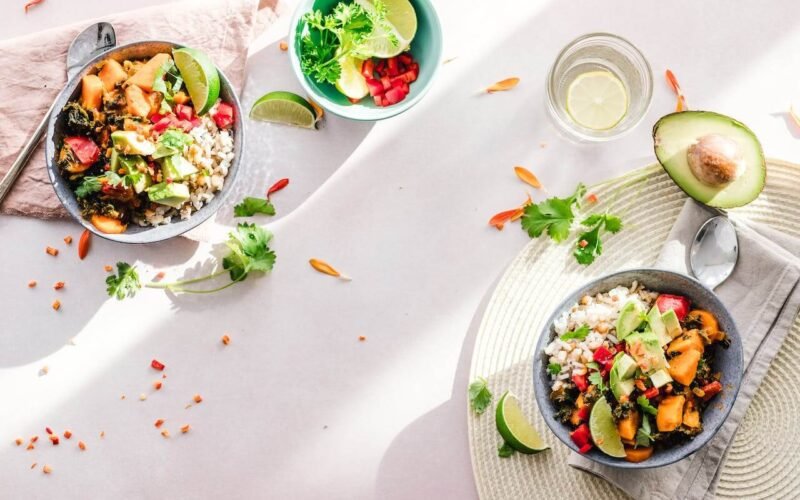Table of Contents
ToggleSpecial Diets for Personal Chefs
As a personal chef, your culinary magic goes beyond the kitchen. It can transform lives, especially when you embrace the art of creating meals that cater to special diets. In this post, we’ll explore why incorporating special diets into your repertoire is not just a trend but a necessity, and how it can significantly enhance your clients’ health and overall well-being.
Why Special Diets Matter
In today’s world, food is not merely a source of sustenance; it’s a powerful tool for health management. Many individuals are turning to specific diets to manage health conditions, prevent diseases, or simply maintain a healthy lifestyle. As a personal chef, offering services that cater to these needs is no longer a luxury—it’s an expectation.
Special diets for personal chefs
The benefits of offering such services are manifold. Firstly, you’re providing a lifeline for clients with specific dietary needs who often struggle to find meals that suit their requirements. Secondly, even for clients without particular ailments, special diet menus can offer healthier alternatives and variety, enhancing their dining experience.
Moreover, catering to special diets can set you apart in a crowded market. It showcases your adaptability, knowledge, and commitment to meeting diverse client needs. Not to mention, it can lead to higher pay as these services are often seen as premium offerings due to the additional skills and knowledge required.

How to Offer Special Diet Services
Offering special diet services involves a deep understanding of various dietary requirements and the ability to translate these into nutritious, appealing meals. Here’s how you can do it:
1. Deepen Your Knowledge
Understand the basics of common special diets—gluten-free, dairy-free, low FODMAP, ketogenic, diabetic-friendly, etc. Learn about the benefits, restrictions, and how these diets help manage specific conditions or promote health.
2. Menu Planning
Based on your understanding, create specialized menus for each diet. Remember, variety is key—your clients will appreciate a diverse range of meals that keep their diet exciting.
3. Nutritional Balance
Ensure the meals you prepare are balanced and nutritious. Use fresh, high-quality ingredients and incorporate a good mix of proteins, carbohydrates, and healthy fats.
4. Tailoring to Individual Needs
Every client is unique. Take the time to understand your clients’ preferences, dietary needs, and health goals. Then, tailor your menus to suit these individual requirements.
5. Constantly Evolve
Stay updated with the latest research and trends in dietary science. Continually evolve your menus and cooking techniques to offer the best to your clients.
Special Diets for Personal Chefs
Incorporating special diets into your services is not just about cooking—it’s about enhancing your clients’ quality of life through your culinary expertise. It may seem like a daunting task, but the rewards are immense. Not only will you see your business grow, but you’ll also experience the satisfaction of knowing your skills are making a real difference in people’s lives. So, embrace the challenge and start your journey towards becoming a personal chef who truly caters to all.
Based on the information gathered from various health and nutrition sources, here is a comprehensive list of 50 ailments that may require a specialized diet. Special diets for personal chefs. A professional personal chef’s help can be instrumental in managing these conditions by creating personalized and balanced meals that adhere to specific dietary needs.
A diet low in saturated fats, trans fats, cholesterol, and sodium can help manage heart disease. A personal chef can prepare heart-healthy meals rich in fruits, vegetables, whole grains, and lean proteins. Read more about Personal Chef for Heart Disease
This condition requires a strict gluten-free diet. A personal chef can ensure all meals are free from wheat, barley, and rye. Read more about Personal Chef for Celiac Disease
Diabetics need a balanced diet with controlled carbohydrates. A personal chef can create meals with a balance of proteins, fats, and carbohydrates to maintain stable blood sugar levels. Read more about Personal Chef for Diabetes
A low-calorie, nutrient-dense diet can aid weight loss. A personal chef can prepare portion-controlled meals that are high in fiber and protein. Read more about Personal Chef for Obesity
A diet low in sodium and high in potassium (DASH diet) can help manage blood pressure. A personal chef can create flavorful, low-sodium meals. Read more about Personal Chef for High Blood Pressure.
A diet low in saturated and trans fats can help lower cholesterol levels. A personal chef can create meals using lean proteins, whole grains, fruits, and vegetables. Read more about Personal Chef for High Cholesterol
Anti-inflammatory diets rich in Omega-3 fatty acids can help reduce inflammation. A personal chef can incorporate foods like fatty fish, nuts, and seeds into meals. Read more about Personal Chef for Arthritis
A high-protein, high-calorie diet can help manage weight loss and muscle wasting in COPD patients. A personal chef can prepare nutrient-dense meals that are easy to eat. Read more about Personal Chef for COPD
Nutrient-rich meals can help manage side effects of treatment and strengthen the immune system. A personal chef can create personalized meals based on a patient’s preferences and nutritional needs. Read more about Personal Chef for Cancer
A low-FODMAP diet can help manage IBS symptoms. A personal chef can prepare meals avoiding common FODMAPs like certain fruits, vegetables, grains, and dairy products. Read more about Personal Chef for IBS
A diet low in purines can help manage gout. A personal chef can prepare meals that avoid high-purine foods like certain meats and seafood. Read more about Personal Chef for Gout
A calcium and Vitamin D-rich diet can help strengthen bones. A personal chef can create meals using foods high in these nutrients, like dairy products and leafy green vegetables. Read more about Personal Chef for Osteoporosis
A low-protein, low-sodium, low-phosphorus diet can help manage kidney disease. A personal chef can prepare meals that meet these dietary restrictions. Read more about Personal Chef for Kidney Disease
A diet low in sodium and high in protein can help manage liver disease. A personal chef can create meals that adhere to these guidelines. Read more about Personal Chef for Liver Disease
Avoidance of allergens is crucial. A personal chef can ensure meals are free from common allergens like nuts, shellfish, or gluten. Read more about Personal Chef for Allergies
A lactose-free diet is necessary. A personal chef can create meals free from dairy or using lactose-free alternatives. Read more about Personal Chef for Lactose Intolerance
A diet low in acid and fat can help manage GERD symptoms. A personal chef can prepare meals that avoid common triggers like citrus, tomatoes, and fatty foods. Read more about Personal Chef for GERD
A high-calorie, high-protein, low-fiber diet can help manage Crohn’s disease. A personal chef can create meals that are easy to digest. Read more about Personal Chef for Crohn’s Disease
A high-calorie, high-protein, low-fiber diet can also help manage ulcerative colitis. A personal chef can create meals that are easy to digest. Read more about Personal Chef for Ulcerative Colitis
The ketogenic diet, high in fats and low in carbs, can help manage seizures. A personal chef can craft meals that adhere to this strict diet. Read more about Personal Chef for Epilepsy
The remaining 30 conditions are: Gallstones, Pancreatitis, Cystic Fibrosis, Parkinson’s Disease, Alzheimer’s Disease, Stroke, Asthma, Anemia, Hemochromatosis, Phenylketonuria (PKU), Atherosclerosis, Diverticulitis, Gastritis, Peptic Ulcers, Dysphagia, Malnutrition, Scurvy, Rickets, Beriberi, Pellagra, Kwashiorkor, Marasmus, Hyperthyroidism, Hypothyroidism, Addison’s Disease, Graves’ Disease, Cushing’s Syndrome, Polycystic Ovary Syndrome (PCOS), Menopause, and Pregnancy.
All these conditions have specific dietary requirements that can be catered by a professional personal chef who can create personalized, nutrient-rich meals that adhere to the necessary dietary restrictions.
Wondering what tools a personal chef might need? I’ve written an extensive article for you – A Comprehensive List Of Must-Have Tools and Essential Items for the Personal Chef
Here are some of my favorite tools for providing my personal chef service
As an experienced personal chef, I’ve found that the secret to creating mouthwatering dishes goes beyond just having a passion for food. It’s also about using the right kitchen tools. Today, I’m going to share with you my must-have kitchen items that help me bring my culinary creations to life.
1. Chef’s Knife
The first item on my list is a high-quality chef’s knife. It’s the most versatile tool in my kitchen, perfect for chopping, slicing, and dicing. My preference is for a Global Chef’s Knife, known for the edge and the way they are balanced.
2. Cast Iron Skillet
Next up is a good old cast-iron skillet. From searing steaks to baking cornbread, this pan does it all. I love the Lodge Cast Iron Skillet, which retains heat beautifully and adds a nice crust to anything you cook.
3. Stainless Steel Pots and Pans
A set of stainless steel pots and pans is essential for a variety of cooking techniques. They’re great for simmering, boiling, and sautéing. All-Clad’s Stainless Steel Cookware Set is my go-to choice for its exceptional performance and durability.
4. Immersion Blender
An immersion blender makes pureeing soups, making smoothies, and blending sauces a breeze. I suggest the Braun Multiquick Hand Blender, which is powerful, easy-to-clean, and highly versatile.
5. Digital Thermometer
To ensure perfectly cooked meats every time, a digital thermometer is a must. The ThermoPro TP19 Waterproof Digital Meat Thermometer provides speedy and accurate readings, ensuring your roast chicken or prime rib is cooked to perfection.
6. Silicone Spatula
A silicone spatula is a chef’s best friend for its versatility. It’s heat-resistant, non-stick, and perfect for everything from folding batter to stirring sauces. I recommend the OXO Good Grips Silicone Spatula.
7. Stand Mixer
Lastly, for avid bakers, a stand mixer is a game-changer. The KitchenAid Artisan Series 5-Qt. Stand Mixer isn’t just a pretty face; it makes mixing doughs and batters effortless.
These are the tools that I use daily in my personal chef service. Remember, quality tools make a difference, but they don’t have to break the bank. Start with the basics and add on as you grow more comfortable and adventurous in the kitchen.
Happy cooking!

